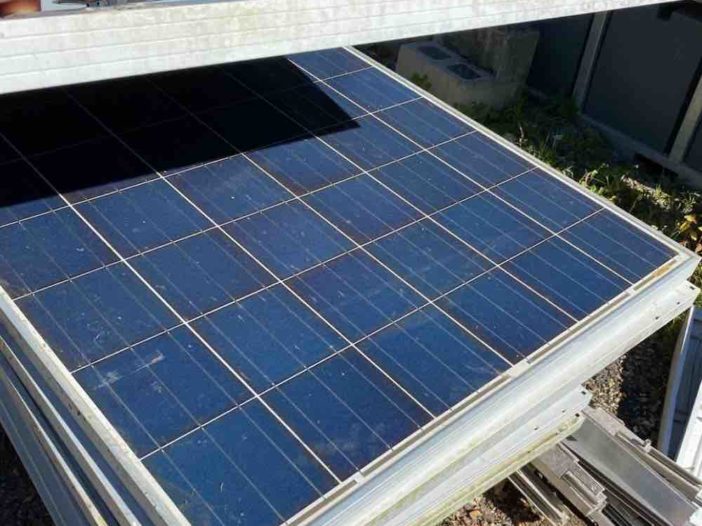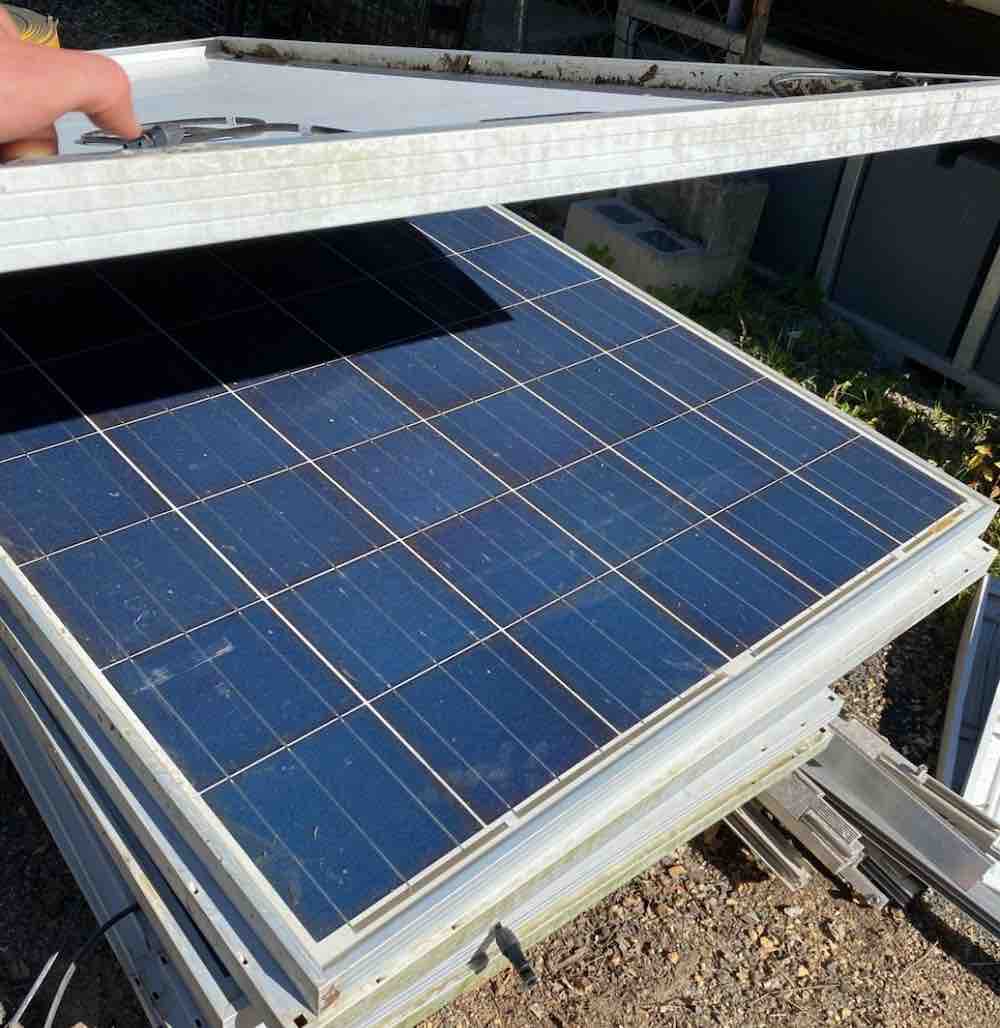
A project investigating the potential to reuse second-hand solar panels, including on the rooftops of households unable to afford the cost of a new PV system, has won the backing of Energy Consumers Australia.
The project, called Reclaimed PV Panels Market Assessment, and led by the University of Queensland, has been awarded $42,869 to explore potential revenue streams and consumer interest for used solar panels.
The project will also identify current market or policy barriers to reusing, repurposing, and recycling discarded solar modules, and explore opportunities to use a circular economy to better include consumers not currently able to access PV due to financial constraints.
The sustainable management of the hundreds of millions of solar panels currently on Australian rooftops that will be discarded at the end of their working lives is a problem that requires urgent solutions, both in Australia and abroad.
Companies focused on recycling and resuing PV module components are starting up around the country, and working with industry and governments to get the potentially quite lucrative sub-sector into full swing.
Less attention, however, has been given to the safe and effective reuse of second-hand panels. And many in the industry see this as a massive missed opportunity.
As Solcast founder and CEO Dr Nick Engerer explains here, innovation and falling costs has meant that households upgrading to more powerful, less expensive and more productive systems is on the rise.
The trouble is that, in the vast majority of cases, the replaced panels wind up at the tip, despite having no actual defects and many good years of solar power generation left in them.
And as Energy Consumers Australia noted this week in the announcement of its grant funding, this not only takes an environmental toll, but amounts to a significant missed opportunity to put those panels back to work.
“It’s clear there is massive potential here if we can unlock a circular economy for solar PV panels,’’ said ECA CEO Lynne Gallagher.
“This will not only reduce waste, but it is also potentially a way for those who cannot afford the cost of new solar PV equipment to participate in generating their own energy at a more reasonable cost.”
The grant for the Queensland program was one of six handed out by the ECA this week, totalling $429,381 in funding.
Others include the Renter Researchers (Winter) – Better Renting project, which was awarded $41,541 to empower people living in rental properties to record their experiences and data to raise awareness and build support for minimum standards of thermal comfort.
And another project, led by the Energetic Communities Association, was awarded $80,000 to build and demonstrate cross-sector and community support for minimum building energy efficiency standards, and to boost advocacy to intervene and make change.
“The transition we are on to abundant and clean energy also needs to be fair and inclusive,” Gallagher said.
“It should have consumer needs and preferences at the centre of the change that is taking place.
“These projects will all make significant contributions towards those outcomes, which is why we’re so excited to be announcing them.”
ECA said the successful applications were chosen from a field of applicants that has more than doubled since the same period last year.
“We are seeing surging interest in the program and a really high level of applications, which is very exciting,” Gallagher said, noting that the next funding round was now open to new applications.
‘’We’re looking for projects that help fill gaps in research or advocacy on behalf of consumers in the energy system,” she said.
“That could be around the transition away from gas or about energy inclusion and making sure nobody is left behind in the transition. It could be around mobility and the electrification of transport or about the different options consumers are likely to face when it comes to batteries and other forms of storage. Or it could be something else entirely.”

Sophie is editor of One Step Off The Grid and deputy editor of its sister site, Renew Economy. Sophie has been writing about clean energy for more than a decade.



